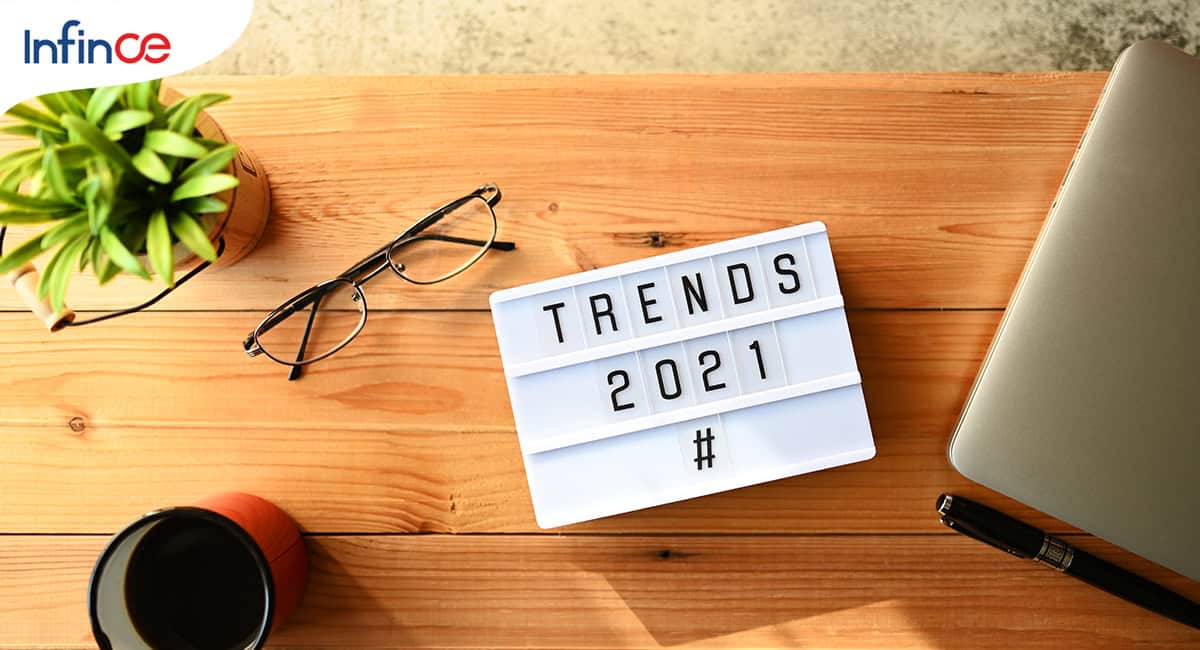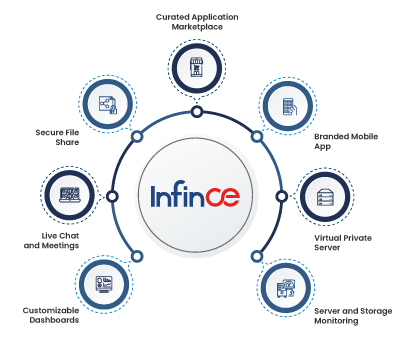Guide to building a digital-first small business in 2021
2020 was a year of realizations for businesses around the world. When health scares like the COVID-19 pandemic hits without warning, life’s normalcy gets disrupted beyond imagination. Companies need to adapt to new ways of working in a matter of days. For smaller businesses with little or no contingency plans in place, the pandemic was an eye-opener. Studies earlier have shown that nearly 80% of small businesses in the US did not take full advantage of the capabilities of digital and productivity tools available in the market for their use.
Download White Paper: How a Digital Workplace Streamlines Business Performance
In today’s digital economy, consumer behavior is directly influenced by the rapid proliferation of digital services and connected devices. There is no escaping the digital transformation realm for small businesses as the pandemic proved that digital supremacy is an inevitable need for survival and not an operational luxury for them. On this note, let us examine the top 4 crucial technology trends that a small business cannot afford to ignore in 2021.
Read more: Top 10 Ways to Set up an Effective Business Strategy in 2021
1. Autonomous Customer Service
Once relied heavily on by customers, traditional services are moving into self-service portals wherein customers can configure and transact independently. There is a rising demand for instant and autonomous customer service. Nearly 62% of US consumers prefer talking to a chatbot while interacting with a business. AI-enabled chatbots offer instant and more data-driven support decisions to consumers when they interact. In a traditional setting, customers are forced to wait long to connect with a human support associate and explain their whole problem. Often, customers will be diverted to another department and the story of waiting and explaining repeats. With autonomous chatbot and voice assistants, most queries receive replies instantly. Also, precise data is collected and transferred to a desk executive when connecting with a human support agent.
2. Integrating Accelerated Mobile Pages (AMP)
It is hard to find businesses without a dedicated website today. Considering that a good majority of your potential customers find out about you from the internet, building a website is necessary for any business. But today, nearly 50.8% of global internet traffic comes through mobile phones. People browsing your website on their mobile phones expect information pages to load as quickly as possible. For this, small businesses must deploy AMP principles in their web development to ensure that every web page offers a seamless loading and viewing experience in mobile browsers. Any delays in page loads can create unsatisfactory experiences for visitors, and your bounce rates will go up if AMP is not incorporated in your web experiences.
3. Marketing Personalization
Do you know that 80% of consumers are likely to do business with a brand that offers them personalized experiences? Personalization begins from the first step that businesses take to reach out to their customers, which is marketing. Rather than shooting out mass email campaigns, sticking flyers and billboards across the city, small businesses can utilize the vast plethora of modern marketing platforms to roll out customized and highly personal campaigns to attract the right audience to their stores or websites. Customers want only the right content to be delivered to their mailboxes to make more informed decisions. Small businesses need to use AI-driven personalized marketing platforms that can quickly identify interest patterns and deploy relevant messaging and recommendations to the correct customer to convince them of a purchasing decision quickly.
Read more: Key Predictions on How Workplace Technology and Culture Will Evolve in 2020 & Beyond
4. Seamless Omni-channel experience
Irrespective of the digital channel that consumers use to reach out, small businesses must deliver an omnichannel experience across their digital landscape. From seamless transactions to better and intelligent recommendations and improved agility in back-office administration, small businesses need to have powerful digital platforms deployed across their operations’ length and breadth. Companies cannot leave their customers lurking in the dark, waiting for information as the competition might take advantage and lure them away with better experiences.
With the rising demand for faster and more digital-friendly experiences by consumers, small businesses should streamline their business process automation and management exercise. They need to efficiently coordinate workflows in different departments, such as finance, supply chain, logistics, HR, marketing, and sales. Additionally, they need to ensure a responsive digital infrastructure for their front-facing internet assets as well.
Read more: How Successful Leaders Engage Employees Using Modern Business Communication Tools like InfinCE
Using intelligent business management platforms like InfinCE is necessary for small businesses to compete in the new digital era. From building a robust digital backend for your business to setting up a roadmap for continuous success on the digital front, InfinCE can reshape your digital ambitions in the most cost-effective way possible. Get in touch with us to know more about how your small business can conquer 2021 with InfinCE Digital Workplace.
Download White Paper: The Business Value of InfinCE for Business Owners and Employees





